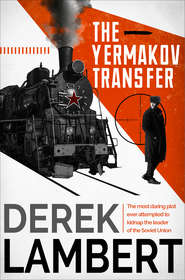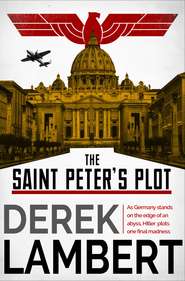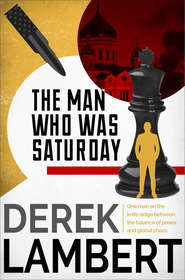По всем вопросам обращайтесь на: info@litportal.ru
(©) 2003-2024.
✖
Angels in the Snow
Автор
Год написания книги
2019
Настройки чтения
Размер шрифта
Высота строк
Поля
‘Sure it’s a long time,’ she said. ‘I just wonder what little old battlefield they’ll have fixed up for him by then.’
The agency man’s wife said: ‘It could be a daughter.’
And Randall, bored by the dramatisation of the unborn, said: ‘Let’s worry about the weather. It’s the only thing we know for sure. It’s going to be very cold very soon.’
‘I don’t think I could stand another full winter,’ the agency man’s wife said.
‘We’re moving off,’ her husband explained.
‘Where to?’ Randall asked politely.
‘Paris, I guess. I’ve done a Vietnam stint.’
Vietnam coloured everything if you were an American, Randall thought. Especially in Russia. Every day the Press attacked American policy with fierce words which had been de-gutted by repetition: instead of crusading the newspapers nagged. But nagging eroded the questioning spirit. ‘Bandit aggression … dirty war.’ The phrases stuck and were assimilated like repetitive advertising. Student demonstrators automatically daubed their banners with these words. They had become a habit.
The counsellor for cultural affairs who looked as if he might have been a prize-fighter walked in and went through a pantomime of being cold. Shivering, rubbing his hands, calling for hot, very hot, coffee. Randall wondered why he still wore a lightweight suit. A first secretary who dealt with Press queries looked round the door, noticed the Pressmen present and hesitated. But the correspondents spotted him and waved; he was trapped.
Two girl secretaries with sallow complexions drank milk and talked intensely. Randall guessed they were discussing their careers or last night’s Bolshoi. ‘So virile … a real man … imagine him leaping into your bedroom.’ It was the Bolshoi.
‘When is your wife coming back?’ the magazine man’s wife asked.
You bitch, he thought. ‘I don’t know,’ he said. ‘I had a letter from her just this morning. She’s not quite up to it yet.’
‘Poor girl. I sympathise with her. It’s too darned easy to crack up in this place.’
‘She didn’t exactly crack up,’ Randall said. ‘She would have stayed on if it hadn’t been for the kids. But we had to get them to a decent school. They were growing up too fast.’
The agency man’s wife folded her hands across her big belly. ‘I envy her,’ she said. ‘Oh boy, how I envy her being back in Washington.’
‘You’re free to go any time you like,’ said her husband. ‘You know that.’ There had been a row that morning.
His wife smiled and became pretty again. ‘I know,’ she said. ‘I know that. But you know I couldn’t leave you here. God knows what you’d get up to.’
They clasped hands, pleased that the others saw them happy together.
‘I must go,’ Randall said.
In the transport section the season’s first automobile casualty was limping in, an apple-green Chev with a buckled fender.
‘What happened?’ Randall asked.
The driver, one of the military attachés, said: ‘A —ing taxi.’
The sky had lightened again and the snow on the ground was fading. But you could feel winter assembling around the city; converging from the Arctic, from Siberia; shivering the match-stick forests of larch and birch, crusting the lakes with tissues of ice, breathing into the rheumy old dachas in the villages.
That afternoon, because the anti-freeze had not arrived at the embassy and the Russian anti-freeze tended to freeze, he poured a bottle of vodka in the radiator of his car.
The rear entrances of the diplomatic block—there were no front entrances—reminded Randall of a set from West Side Story. There was, like Russian diplomacy, very little diplomatic about them.
The tall flats, made of pale, dirty brick, almost surrounded the big car park and ramshackle playground. Balconies which few trusted seemed to have been stuck on the walls and were used by pigeons and sparrows and Africans who draped them with laundry. At night you could see television sets flickering and diplomats dining and sometimes the unwary undressing for bed.
On summer nights youths from a dozen countries lounged against the big packing cases in which furniture was shipped in and out. They wore jeans and sneakers and commented on pretty women passing in languages which they hoped were not understood. Little girls, black, coffee and white, played hopscotch around the chalk-scrawled entrances; and on the benches sat mammies and mummies and nannies remembering greasy Accra evenings, the curried dusks of New Delhi, late sunshine on the Serpentine, night thickening and salted by the sea in San Francisco.
The nights were pierced with children’s cries. Adolescent oaths in Spanish, French, Italian and many varieties of English. It was an international ghetto, a Block of Babel.
When Randall arrived the fire engines had just pulled up. An Algerian boy playing with matches inside an empty packing case had set fire to it and the crate was in flames. The boy lay on the dirty sand shivering violently and whimpering; his clothes and hair were scorched and, although his parents were beside him, he kept calling for his baby sister.
Sparks spiralled into the evening fog pressing down over the city. A breeze blew the sparks to one side and flames, like orange liquid, ran down the side of another case dust-dry after the hot late-summer. The case, as big as a small shop, was addressed in black paint to Cairo. A middle-aged woman with a dark creased face moaned, clasped her hands and shook her head.
‘All her furniture’s in there,’ someone shouted.
‘Let’s get it out then.’
‘Can’t, there’s no bloody key.’
‘The key,’ shouted a Swede. ‘You must give us the key.’
The woman began to rock from side to side. ‘My husband,’ she said. ‘My husband.’
Firemen in khaki were running with a hose to a hydrant.
Randall got a crowbar from his car. ‘Come on,’ he said, ‘we’ll bust it open.’ He grabbed the arm of a young man hurrying across the playground towards the fire. It was the Englishman he had collided with that morning. Most of Randall’s mind was occupied with saving the furniture; but a sliver of it observed maliciously that the stranger’s new coat, bright shoes and raw gloves would never be quite the same again.
Randall jammed the crowbar behind the bar of metal held by a padlock and pulled. The Englishman pulled beside him. He felt the bar give a little. Spectators crowded the precarious balconies and children chased the sparks. Then the jet from the hose hit the side of the case thrusting it backwards. Smoke and steam enveloped Randall and the Englishman.
‘Pull,’ Randall shouted. ‘For Christ’s sake pull.’
The bar ripped loose and the doors burst open. Hot white smoke burst out. Other men ran forward and helped them pull the furniture, bandaged in newspaper, out of the case. The cheap veneer was blistered and butterflies of flames fluttered among the newspaper. The woman watched, still rocking, murmuring to herself in Arabic.
‘Poor bitch,’ Randall said. ‘She was going home tomorrow. That’s all she needed.’ He looked at the Englishman and laughed. His eyes were red, his cheeks coursed with sooty streams, his coat singed and flaked with ash. ‘You’d better come up and have a drink,’ he said. ‘You look as if you need one.’
‘No thanks. I’m perfectly all right. I need a bath more than a drink.’
‘A drink first,’ Randall said firmly. ‘Come on. What’s your name by the way?’
‘Mortimer. Richard Mortimer. I only arrived last night.’
‘A baptism of fire,’ Randall said.
Mortimer smiled, teeth flashing coonishly in his blackened face. ‘It’ll be something to write home about,’ he said.
Randall entered the flat cautiously in case Mrs. Fry had returned, or never left. There was a note in the bedroom: that was inevitable. It would have taken over an hour to compose, vituperation distilled into four painstaking paragraphs. He tore it up without reading it. The room smelt faintly of her hair lacquer.
‘What can I get you?’ he asked. Mortimer was patrolling the lounge examining his possessions—the simova, two heavy brass candlesticks, beaming wooden dolls, flabby succulents, a cactus which had sprouted two ears and looked like a cat, a collection of china eggs bought in one of the commission shops, the modern art sprawled across one wall.
Mortimer said he would have a beer. Randall said: ‘You need a Scotch.’ And poured him one. ‘What do you think of them?’ He pointed at the paintings.
‘I think they’re splendid,’ Mortimer said.
Другие электронные книги автора Derek Lambert
The Red Dove




 3.67
3.67
Vendetta




 0
0











